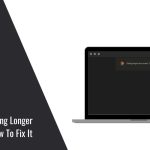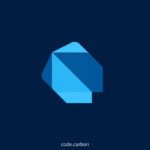JavaScript is considered a suitable language for beginners. Partly because of the fact that it is massively used for web development, and partly because of the language features with which even imperfect code is executed. It is not strict like other languages: it allows for the omission of semicolons or the unwillingness to worry about memory management.
The work of a developer is complex and interesting. At the same time, passing an interview can be as easy as walking through an open door. And it can be very difficult if you get some particularly tricky tasks to solve on the white board. You’ll never guess.
Fortunately, we can prepare for the technical part of the interview to be sure of at least one. Yes, we may be asked strange questions, but once we are prepared, we can be sure that we will answer the technical ones accurately.
I have collected thirty questions that I think it is better to prepare an answer to before you go to the interview for the position of a JavaScript developer.
General Interview Questions
The interviewer asks these questions to get to know you better, to find out how you react, how you think, how well you will fit into the company’s team.
The answers to these questions should be relatively brief, since they still do not have much weight.
You don’t need to blurt out the answer right away: take pauses to think about the question well. These questions, in theory, should make you “open up” so that the interviewer sees your essence.
- What do you like about programming? What exactly interests you in this process?
- What did you learn yesterday (this week)?
- Tell us about your favorite development environment. What operating system, IDE, terminal do you use? Why did you choose them?
- If you could only master one technology this year, what would you choose? How exactly would you work on acquiring this skill?
- What resources and tools do you use, and what forums do you visit to learn about the latest frontend development and design trends? Do you have any favorites among the resources than you like them?
- If you join a project where the team uses tabs, while you prefer spaces, what will you do? Will you try to convince the team to use spaces, or will you join the general flow and use tabs?
- Can you describe your workflow while creating a web page? What are your first 5 steps when creating a new project?
- What technical difficulties have you encountered recently and how did you solve this problem?
- What steps have you taken in your last project in order to increase the maintainability of your code? Are there any specific programming paradigms that you prefer? Maybe functional programming or test-driven development?
Technical Interview Questions
After the introduction and general questions, there are technical ones. These questions will focus more on frontend development, but may also include questions about backend, devops, and problem solving.
- What version control systems do you know? How do you share code between projects?
- Name 4 ways to reduce the page load time.
- What does the abbreviation CORS mean? What problems CORS is used to solve?
- Explain what ARIA and screen readers are. Tell us how to make the site accessible.
- What does doctype do?
- What are the building blocks of HTML5?
- Explain the difference between localStorage, cookies, and sessionStorage.
- What are the data-attributes good for?
- What should be considered with caution, engineering, or developing for multilingual sites? How do I serve a page with content in different languages?
- What is progressive rendering?
- Explain how this works in JavaScript? How does this work in classes, and how does it work in functions?
- Describe the ascent and interception of events (event bubbling and event capturing).
- Explain the variable hoisting.
- Explain the difference between:
function Animal() {}
var animal = Animal()
var animal = new Animal()
- What is the difference between native objects and host objects? What is the typical use case for anonymous functions?
- Explain how prototypal inheritance works in JavaScript.
- What is closure, why and how to use it?
- What is the difference between null and undefined?
- What is the difference between == and ===?
- What is Webpack? What problems does it solve?
- Have you ever used a frontend framework or library? What was that?
Appraisal
Overall, we hope that these questions have helped you better understand what to expect from a JavaScript interview. And do not forget to look through these questions before the interview, it will help you better prepare for your next one.



